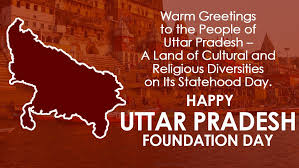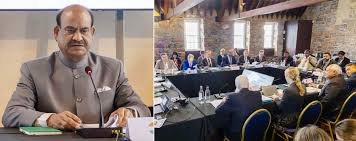PM Modi Addresses One World TB Summit at Varanasi – India’s Fight Against TB
A) PM Modi Addresses One World TB Summit at Varanasi India’s Prime Minister Narendra Modi delivered a virtual address at the One World TB Summit in Varanasi on 21st April 2023. The summit was organized by the World Health Organization (WHO) in partnership with the Ministry of Health and Family Welfare and the Indian Council of Medical Research. The summit aimed to bring together global leaders, policy-makers, researchers, and civil society representatives to discuss and accelerate the fight against tuberculosis (TB).
The Prime Minister highlighted the Indian government’s commitment to ending TB by 2025, five years ahead of the global target. He emphasized the need for a multi-sectoral approach to tackle TB, which is not only a medical issue but also a social and economic issue. He called for strengthening the health system, improving access to quality health care, and increasing investment in TB research and development.

B) Why this News is Important:
India has the highest burden of TB in the world, accounting for one-fourth of global cases. TB is a preventable and treatable disease, yet it continues to be a major public health challenge in India, particularly among vulnerable populations such as the poor, marginalized, and those living with HIV. The COVID-19 pandemic has further exacerbated the situation by disrupting TB diagnosis, treatment, and care services. Therefore, it is critical to strengthen efforts to end TB in India and globally.
C) Historical Context:
TB has been a major public health challenge in India for several decades. The National TB Control Program was launched in 1962, and since then, the program has undergone several revisions to improve its coverage and effectiveness. In 2017, India committed to ending TB by 2025, ahead of the global target of 2030. The government launched a multi-sectoral approach to tackle TB, which includes a focus on early diagnosis and treatment, engaging the private sector, and addressing the social determinants of health that contribute to TB.
D) Key Takeaways from “PM Modi Addresses One World TB Summit at Varanasi”:
| Serial No. | Key Takeaway |
|---|---|
| 1. | India has the highest burden of TB in the world, accounting for one-fourth of global cases. |
| 2. | The Indian government is committed to ending TB by 2025, five years ahead of the global target. |
| 3. | A multi-sectoral approach is needed to tackle TB, which is not only a medical issue but also a social and economic issue. |
| 4. | Strengthening the health system, improving access to quality health care, and increasing investment in TB research and development are essential to end TB. |
| 5. | The COVID-19 pandemic has further exacerbated the TB situation by disrupting diagnosis, treatment, and care services. |
In conclusion, the One World TB Summit in Varanasi brought together global leaders to accelerate the fight against TB. Prime Minister Modi’s address emphasized the need for a multi-sectoral approach to tackle TB and highlighted the Indian government’s commitment to ending TB by 2025. Students preparing for government exams in the health sector should be aware of the burden of TB in India, the government’s efforts to tackle it, and the challenges posed by the COVID-19 pandemic.
Important FAQs for Students from this News
Q. What is the One World TB Summit?
A. The One World TB Summit is a global event organized by the World Health Organization (WHO) to accelerate the fight against tuberculosis (TB).
Q. Why is TB a major public health challenge in India?
A. India has the highest burden of TB in the world, accounting for one-fourth of global cases. TB is a preventable and treatable disease, yet it continues to be a major public health challenge in India, particularly among vulnerable populations such as the poor, marginalized, and those living with HIV.
Q. What is the Indian government’s commitment to ending TB?
A. The Indian government has committed to ending TB by 2025, five years ahead of the global target of 2030. The government has launched a multi-sectoral approach to tackle TB, which includes a focus on early diagnosis and treatment, engaging the private sector, and addressing the social determinants of health that contribute to TB.
Q. How has the COVID-19 pandemic impacted the TB situation in India?
A. The COVID-19 pandemic has further exacerbated the TB situation in India by disrupting diagnosis, treatment, and care services.
Some Important Current Affairs Links

















